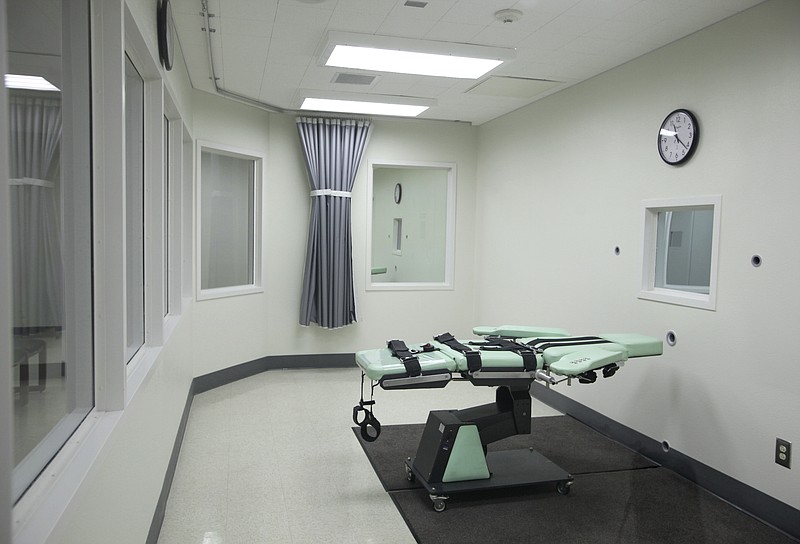ATLANTA (AP) - The head of Georgia's Department of Corrections on Wednesday set an execution date for a man convicted of killing a woman by shooting her in the head five times.
Department Commissioner Homer Bryson scheduled the execution of 47-year-old Kenneth Fults for 7 p.m. April 12, according to a department news release. Fults pleaded guilty in 1997 to killing Cathy Bounds in January 1996, and a jury sentenced him to die.
Bounds' death came during a weeklong crime spree that started when he stole two guns during burglaries, prosecutors said. After trying unsuccessfully to kill his former girlfriend's new boyfriend with one of the stolen guns, Fults broke into the Spalding County home of the 19-year-old Bounds, prosecutors said.
Bounds pleaded for her life, but Fults forced her into the bedroom, put her face-down on the bed, put a pillow over her head and shot her five times in the back of the head, prosecutors said.
Fults confessed to killing Bounds after a law enforcement officer confronted him with a boastful letter he had written in gang code that described the slaying, prosecutors said. But Fults told authorities he shot her by accident while in a dream-like state, prosecutors said.
The gun used to kill Bounds and items stolen during the earlier burglaries were found at Fults' trailer home.
The U.S. Supreme Court in October declined to hear an appeal from Fults. His lawyers had argued racial bias deprived him of a fair trial because a white juror who voted for the death penalty later referred to him with a racial slur.
During jury selection, Thomas Buffington told the judge and lawyers on both sides he felt no racial prejudice. He was selected for the jury that sentenced Fults to death.
An investigator who was part of Fults' legal team reached out to Buffington eight years later to ask about his experience on the jury.
"Once he pled guilty, I knew I would vote for the death penalty because that's what that (N-word) deserved," Buffington said, according to an affidavit signed April 12, 2005.
Buffington died in 2014.
Fults' lawyers had tried for 10 years to get a court to consider evidence of racial bias, but state and federal judges had already rejected Fults' appeal by the time the Supreme Court rejected the case without comment in October.
Georgia has already executed two inmates this year, and another inmate, Joshua Bishop, is scheduled to be put to death March 31
